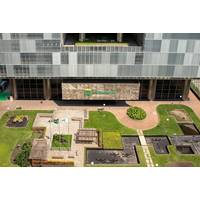Shale Gas Risk Management: DNV Leads the Way
DNV has launched a recommended practice (RP) for the entire life cycle of shale gas extraction, based on risk management principles. The recommended practice provides a reference document for the independent verification of shale gas projects. The objective is for the RP to form the basis for a globally recognised standard for safe and sustainable shale gas extraction.
DNV’s recommended practice applies risk management principles, to ensure that threats related to shale gas activities are effectively and efficiently managed in an accurate, balanced, transparent and traceable way. “The overall objective of this Recommended Practice is to establish guidelines and recommendations for the processes required to protect the safety of people and the environment during all phases of shale gas field development and operations,” saidRemi Eriksen, CEO of DNV Maritime and Oil & Gas.
The company further recommends that shale gas operations are monitored and publicly reported. This will establish proper points of reference and consistent monitoring prior to, during and after operations, it advises carrying out extensive baseline surveys prior to the commencement of any shale gas activities. The information gathered should be openly disclosed to all stakeholders, including the general public.
“There is great public concern about the consequences of shale gas operations. Our recommended practice will contribute to increase the trust and confidence among the general public by implementing operational best practices and making the industry document how its activities are being executed in a safe and responsible manner,” says Eriksen.
Shale Gas: A Game Changer
Shale gas has been widely identified as a game changer in the global energy market. The North American shale gas revolution has made shale gas an increasingly important source of natural gas and awoken other potential shale gas nations across the globe, including the UK, Poland and China.
The industry is facing a variety of challenges in managing the safety, health and environmental risks involved, and a global standard for safe and sustainable shale gas extraction is yet to be established.
Although several stakeholders have developed documents and guidelines covering parts of the activities involved, a complete risk management framework has, up to now, been lacking. The Recommended Practice focuses on the following aspects: management systems; safety, health, and the environment; well integrity; management of water and energy; infrastructure and logistics; public engagement; stakeholder communication; and permits. It has been developed following consultation with European and US authorities, oil and gas companies, NGOs and other industry bodies.




